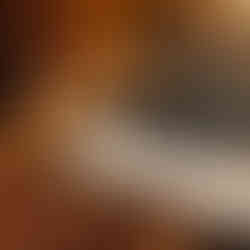WHY OUR WORLD NEEDS HEALING?
- Rizwan Shaik
- Apr 17
- 6 min read
A Traditional Chinese Medicine perspective for the Modern Era
Introduction - Our Context
Our World today is drenched in stress, burnout, and a rising incidence of chronic health issues. While modern technology has brought incredible innovations to the masses, they have distanced us from old traditions and disengaged us from Nature. It has clearly led to fragmented thinking at the individual, community, and global levels. As a result, we are living our lives in disharmony with Nature.
Let’s explore how we can get back to redeeming our lives and strive for better health outcomes.
The Problem: A Fractured Health Paradigm
We live in an era of medical marvels - robotic surgeries, telehealth consults, and AI diagnostics. The architecture of modern healthcare is fundamentally flawed: it is mainly reactive, fragmented and designed to suppress symptoms rather than understand their origins. Specialists work in silos, consultations often result in quick prescriptions, not meaningful understanding of the individual. Thus, our modern healthcare is designed for acute emergencies, but not for healing from chronic imbalances.

Self-centered vs Holistic approach:
Each individual is encouraged to think about themselves first, then others. This thinking has percolated through scientific and medical approaches to diagnosing and treatments. Thus, taking a specialized approach to disease management, while a variety of diseases manifest. As an example, we are focused on symptoms rather than etiologies or root causes, preventive measures are ignored, and treatments have become reactionary. As if each organ dysfunction does not impact the body as a whole. For example, taking Tylenol to suppress the temperature does not address the underlying cause of infection / inflammation. Similarly, our individual actions magnified by an entire community of habits are producing communities that are in disharmony with Nature.
Current State of Dis-ease in Modern Society:
Ignoring Root Causes
Modern medicine is based on empirical evidence and addresses observable symptoms. This means that physiological dysregulation may be ignored until its physical manifestations prove inconvenient for individuals. Their presence is neither felt nor noticeable until agents have wreaked havoc on the body's functions. Most chronic diseases that do not manifest in early stages may become irreparable later. Thus, the societal impact of delayed addressing of root causes brings a lasting impact on the entire community.
Chronic Stress
The modern lifestyle is fast-paced and productivity-driven. Often leading to mental and physical stress placed on our lives, while ignoring the cost of burnout. We experience burnout almost daily while attempting to reach our goals, we just become more tolerant of noticing its effects over time. Until our mental capacity and physical health have depleted themselves. Today, we are seeking moments of clarity - where we can feel “alive” again.
Emotional Exhaustion
Our lives today are swinging in multiple directions due to societal demands. We are being impacted due to the global epidemic of anxiety and depression. In TCM, emotions are tied closely with organs - anger with liver, grief with lungs, worry with spleen etc. Thus, any chronically prevalent emotional issues have led to physical manifestation of organ malfunctions.

Fragmented Care
Healthcare today is sick care, neither holistic nor preventative. Patients typically present to their Medical professionals with specialized symptoms, and their treatment is also specialized. Patients should be addressed as a whole when mental health problems are presented, the organ system level changes are noticeable, but chronic problems produce irreversible damage to organs.
Capacity to Heal
The human body is a garden, not a machine. Our human bodies are equipped with cycles of resilience just like in Nature. According to TCM, our bodies are macrocosms of the Natural World around us, where we experience highs and lows. We thus are ignoring these cycles of Nature - four seasons, five elements, and energy levels - that enable us to maintain our Yin and Yang balance. Any constant disruption from the norm reduces our capacity to heal - disrupting our mind, our bodies, and our emotional well-being.
GOAL: Improving Health outcomes
Whether we believe in self-fulfillment or collective enrichment, we need to see transformative change. A paradigm shift is critical since the real crisis is not just disease, but the prevalence of disconnection from Nature. We are impacted by habits, stresses and inter-relationships that govern our reality. The ultimate question remains: How do we get back to living in harmony with ourselves, with society and Nature?
Firstly, we truly need our health information and data to tell us where we are today - both individually and collectively.
Secondly, we should aspire for growth and fulfillment across all aspects of human life - physical, mental, socio-economic and spiritual. Neither one can be ignored.

Reimagining Healing
We will need to discuss what “Healing” means. Healing is nothing but body’s natural ability to repair damaged tissues and restore functionality. Modern Medicine heals parts, not the whole.
TCM lays a traditional perspective with great emphasis on restoring balance and healing - treating organs as part of a whole organ system. Healing becomes the cornerstone upon which our lives and living should be governed. Being aligned with Nature at each level of life enables us to assess, grow, and recharge.
Individual - By assessing the balance of Yin and Yang in our body, TCM treatments like Acupuncture, Herbal Medicine, and QiGong bring us back into equilibrium. This emphasis on harmony and balance is unique to traditional Chinese medicine philosophy.
Community - Community Centres are funded to focus on the holistic health of each community member. While each individual is important, collectively, the goal of each community is to transform habits and enable better health outcomes. TCM emphasizes community healing with group healing circles such as QiGong and TaiChi. Communal meals enable socio-economic well-being, whereby people who can’t afford daily meals can partake in healthy living.
Regional - Social Welfare of a collective of communities helps align regional values by bringing together local needs and interconnecting communities. It helps align resources and care models of the entire population of a nation. As a nation, it is detrimental to analyze Social Determinants of Health (SDH) for equitable distribution of resources and services. This enables integrated care pathways by standardizing protocols, and digital records to reduce fragmentation in healthcare. Collectively communities (under the authority of Public Health) can fight challenges such as drug addiction, infectious diseases, sexual health, and vaccination programs.
Global - Just like interconnected communities make a region/nation, global healthcare fosters collaboration by bringing together nations. Global initiatives enable health as a universal human right, and disease surveillance by WHO and UN prevent global spread.
While the emphasis is on the individual to restore balance for better health, the individual is connected to the world as part of the global community. Traditional Chinese Medicine offers a unique and desperately needed balance to our modern lifestyle. It starts with the self, connecting with others to stay in tune with Nature.
Integrative Medicine and Technology : Paradigm Shift
Self - Community - Nature is the integrative medicine’s paradigm shift that is lacking in modern medicine today. Traditional Chinese Medicine, as we have explored, approaches wellness from a holistic perspective while connecting it with larger constructs such as communities, nations, and the environment.

Both Western and Chinese Medicine have their strengths and weaknesses. The Goal is to find integrative care journeys for patients seeking to improve their lives with a basic understanding of Natural Healing. Our modern world offers advancements in data science and innovative technology to fuse tradition with the transformative power of staying connected as communities, for deeper understanding and more meaningful results.
About the Author:
From the Founder of QUBE HUB

Rizwan Shaik MD, EMBA, R.Ac (pending) is a Western Medicine-trained professional with over a decade of experience in Clinic Operations, specializing in the development of integrative medicine clinics in the Greater Toronto Area. As a health tech founder, he supports the adoption of Artificial Intelligence tools within traditional clinical environments to optimize efficiency and optimize care delivery. His recent focus lies in advancing holistic medicine products, aiming to bridge Eastern and Western modalities and promote preventative, patient-centered care.
References:
_edited_edited.png)
_edited.png)












Comments